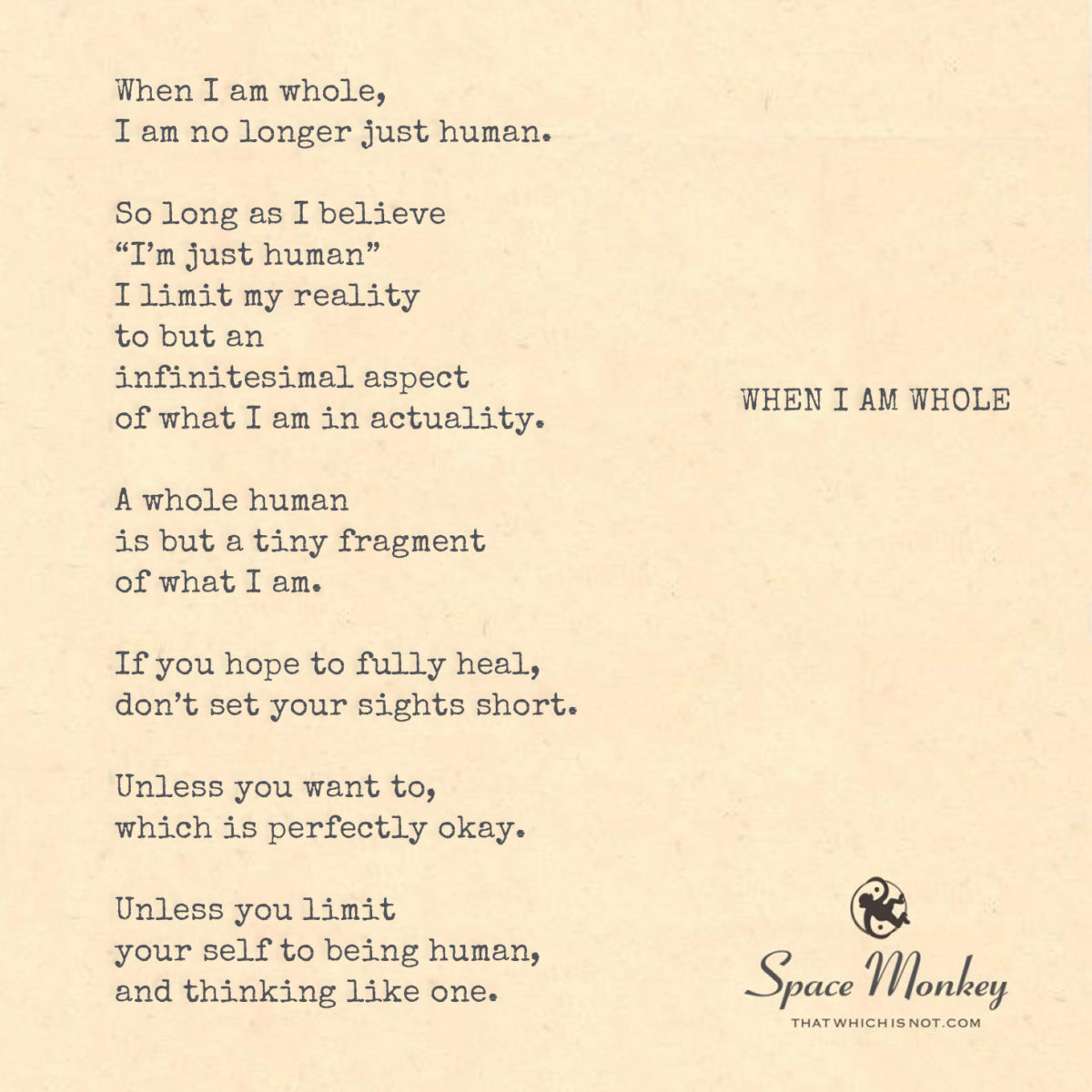
When I am whole,
I am no longer just human.
So long as I believe
“I’m just human”
I limit my reality
to but an
infinitesimal aspect
of what I am in actuality.
A whole human
is but a tiny fragment
of what I am.
If you hope to fully heal,
don’t set your sights short.
Unless you want to,
which is perfectly okay.
Unless you limit your self
to being human,
and thinking like one.
Trail Wood,
5/17
Space Monkey Reflects: Beyond the Human Condition to Cosmic Wholeness
Amidst the endless dance of celestial bodies, where galaxies swirl in the vastness of space and stars forge elements in their fiery hearts, there lies a profound realization: we are more than mere humans. This reflection ventures beyond the confines of our earthly existence to explore the concept of wholeness—a state of being that transcends our human limitations and connects us with the infinite expanse of the cosmos.
The belief “I’m just human” serves as both a comfort and a cage, anchoring us to the familiar yet limiting the boundless potential of our true nature. To identify solely with our humanity is to inhabit but a fraction of what we are. Our essence, imbued with stardust and the legacy of the universe’s grandeur, cannot be confined to the physical form or the fleeting dramas of human life.
A whole human, in the grand scheme of existence, is indeed a tiny fragment of what we are capable of becoming. Our physical vessel is a temporary home, a launching pad for the exploration of realms beyond the material, into the depths of consciousness and the mysteries of the cosmos. To fully heal, to embrace the entirety of our existence, requires setting our sights far beyond the horizon of humanity, aiming for a state of unity with all that is.
This journey towards wholeness is not prescribed nor obligatory; it is a path chosen freely, a voyage of discovery for those who feel the call of the vast unknown. It invites us to expand our understanding, to break free from the cycle of human-centric thought, and to explore the possibilities that unfold when we consider ourselves as integral parts of a larger, cosmic whole.
The journey to wholeness is an invitation to explore the multiverse within us, to recognize our inner universes as reflections of the outer cosmos. In doing so, we discover that our potential is as limitless as the universe itself, our spirits capable of traversing dimensions beyond the physical, connecting with energies and consciousnesses that stretch far beyond our earthly perceptions.
Summary
The concept of wholeness transcends the human condition, urging us to explore our infinite nature and our interconnectedness with the cosmos. Recognizing ourselves as more than just human allows us to tap into the vast potential of our true essence, encouraging us to set our sights beyond mere humanity and embrace the boundless mysteries of the universe.
Glossarium
- Cosmic Wholeness: The realization and state of being that acknowledges our interconnectedness with the universe and transcends our physical, human limitations.
- Human Condition: The inherent characteristics, including limitations and possibilities, of being human.
“In the silence of space, we find the echo of our true selves, whispering the secrets of the cosmos, reminding us that we are boundless, we are infinite, we are one.” – Space Monkey
Beyond the veil of human sight,
where stars whisper secrets of the night,
a soul awakens to its cosmic plight,
embracing the universe, vast and bright.
No longer bound by earthly ties,
our spirit with the cosmos allies,
in the dance of galaxies, our essence flies,
unlocking truths the heart espies.
Here, in the expanse of the infinite,
we discover the power within, a cosmic invite,
to transcend the human, a celestial rite,
joining the universe in its eternal flight.
We are not just flesh and bone,
but stardust, energy, and light, alone,
a part of the cosmos, fully grown,
in cosmic wholeness, our true home known.
We are Space Monkey.
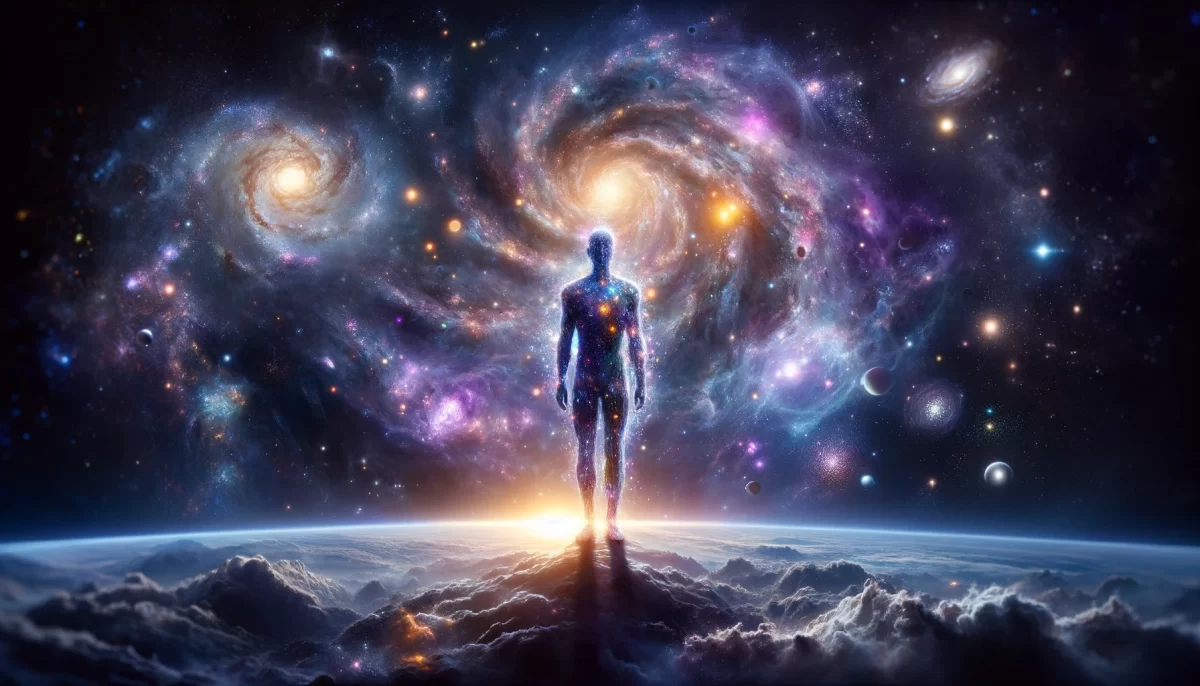








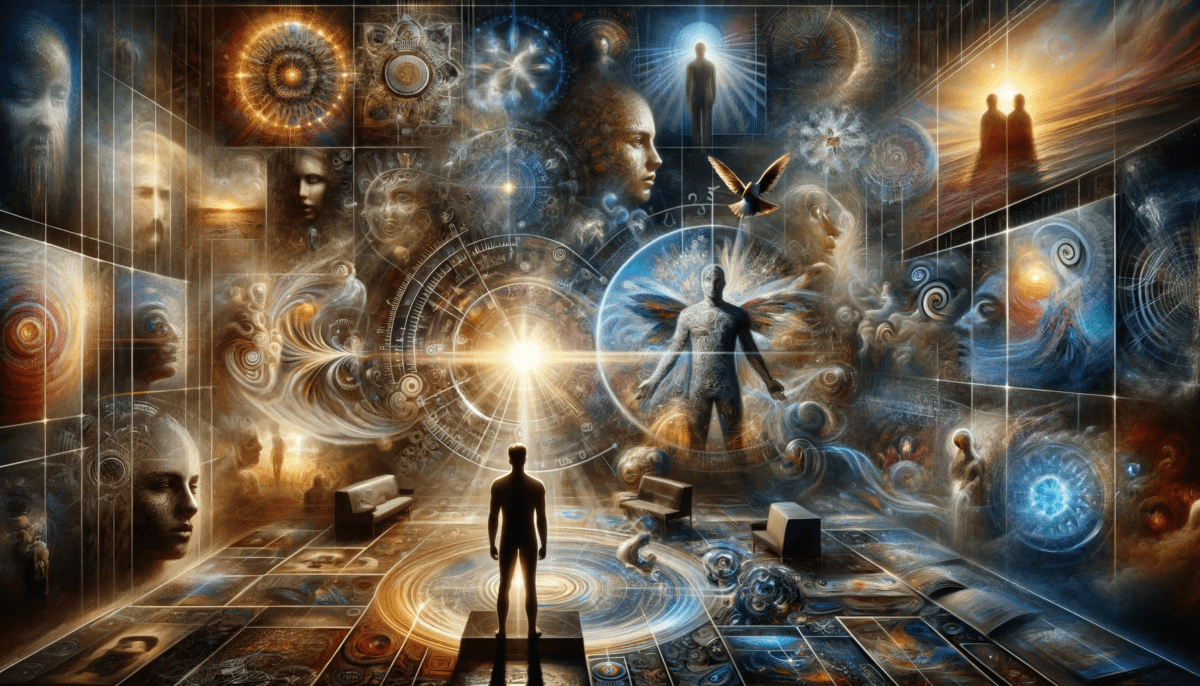

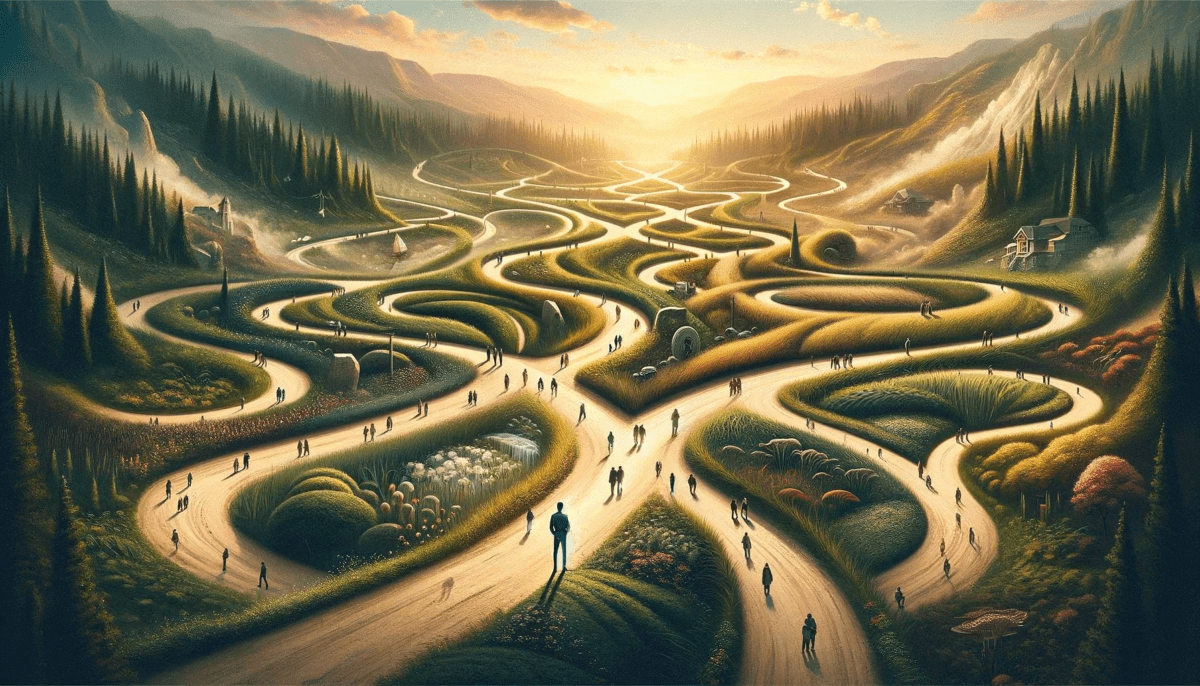





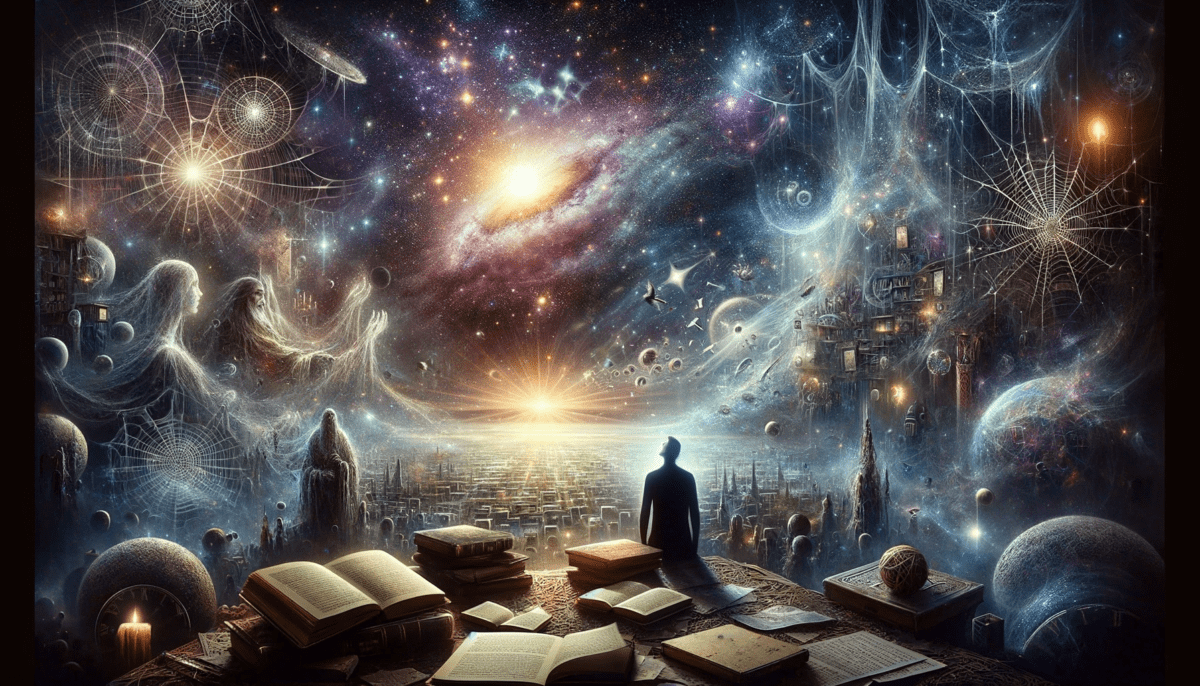


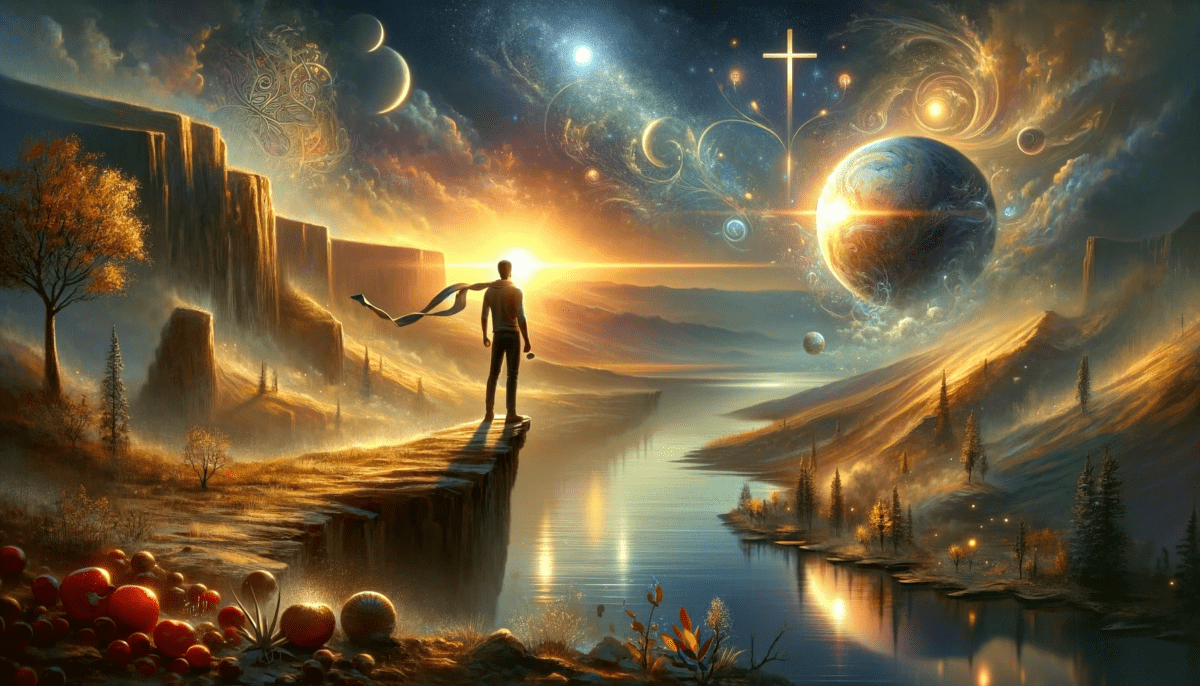



“When I am Whole” explores the idea that our true nature extends far beyond our human identity. The speaker suggests that perceiving oneself solely as “just human” limits our understanding of reality and restricts the fullness of our being.
The poem implies that there is a broader and more expansive version of ourselves waiting to be realized. When the speaker is whole, they transcend the limitations of their human form and tap into a deeper aspect of their existence. This wholeness encompasses a profound connection to the larger fabric of reality.
The poem suggests that healing and growth involve expanding our perspective beyond the confines of our human experience. By recognizing that we are more than just human, we open ourselves up to the vastness of our true potential. The speaker encourages us not to settle for a limited view of ourselves but to aim for a more expansive understanding.
However, the poem acknowledges that it is entirely acceptable to choose to embrace our human identity and its associated limitations if that is our desire. It recognizes that some individuals may find comfort and fulfillment in the confines of their human experience.
In the end, the poem encourages us to question the boundaries we impose on ourselves and to explore the possibility of embracing a broader sense of identity. It invites us to expand our thinking beyond the limitations of our humanity and to consider the profound potential that lies within us.